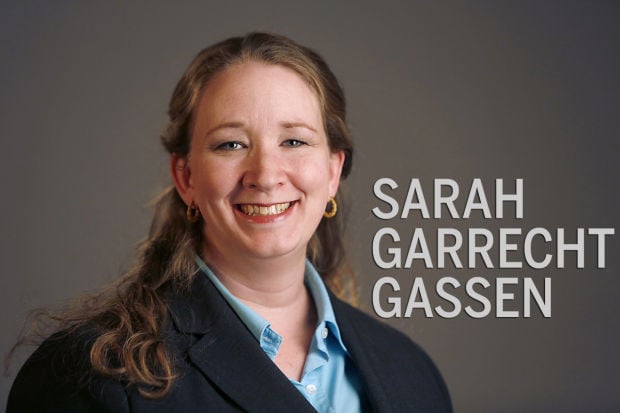I’ve taught at the University of Arizona School of Journalism for more than a decade, and for many of my students May is the end of their school careers.
Some need a push forward, but others are eager to soar. I’ve watched them grow, as journalists and people.
I observe my college students, these young adults, and wonder what they were like as first-graders. What did they want to be when they “grew up”? Did they have any inkling of what was to come?
Do they now?
So many of our turning points in life are unnoticed at the time, beyond our control. Looking back, these new college graduates can see people and decisions that were pivotal.
But looking forward, what can first-graders see? As children our world is so much smaller, and our control over it is so finite.
The students I work with as a first-grade reading volunteer at Walter Douglas Elementary School are at the beginning of everything. They’re learning to read and write, and do math and science. Like my college students, some need a push forward, but others are eager to soar.
Tom, a sweet and smart boy I’ve written about before, was one ready to soar. He loved the worlds he opened with words. He loved his family, his friends and the characters he met in stories he read, and the stories he told.
He loved his family, his dog and the friends at the motels where he and his mom sometimes lived when they weren’t staying with friends. They were excited to move into one on Miracle Mile because it’s close to Walter Douglas Elementary.
His dad had a job that kept him on the road, and they never knew for sure when he would come home until he pulled into the parking lot.
Tom talked about all these things when we read together on Fridays. He struggled with some words — lowercase b and d are just plain confusing, he would say — but he worked at it. He yawned a lot and talked about being woken up by noises at the motel. Sometimes he and his clothes weren’t clean.
Life outside of school was hard, but to him it was just life. His mom volunteered in his classroom, and that made him so proud. Their circumstances were difficult, but their love as a family wasn’t.
Tom stopped coming to school in February. The office called, his teacher called. No answer. They kept calling. No answer. They tried again. Nothing. They still try.
After 10 consecutive unexcused absences, state law requires schools to officially withdraw a student. Schools are funded by enrollment, and they can’t count students who are no longer attending. Tom was dropped.
If school personnel suspect foul play they call law enforcement, but that’s uncommon, says Charles Tack, spokesman for the state Department of Education.
Families are supposed to obtain a withdrawal form from the school. But sometimes the child just stops coming to class. Walter Douglas Elementary is surrounded by trailer parks, weekly motels and apartments, and housing isn’t stable. People who can’t afford much move around a lot, and paperwork isn’t necessarily at the top of the priority list.
Often the only way a school like Walter Douglas finds out what happened is when it receives a request for the student’s records from another Arizona public school.
A family can put a child in private school or sign the one-page affidavit that the child will be home-schooled and the original school isn’t told. Schools in other states typically request students’ records, but not always.
So we don’t know where Tom is now. As of yesterday, no one had requested his records. His mom had mentioned there might be better job opportunities elsewhere, so maybe they moved out of state.
Or maybe he’ll show up at Walter Douglas again.
When I think of Tom, which is often, I picture him a dozen or so years from now, standing in his cap and gown, ready to graduate from college and take on the world.
He is smiling, ready to soar.





